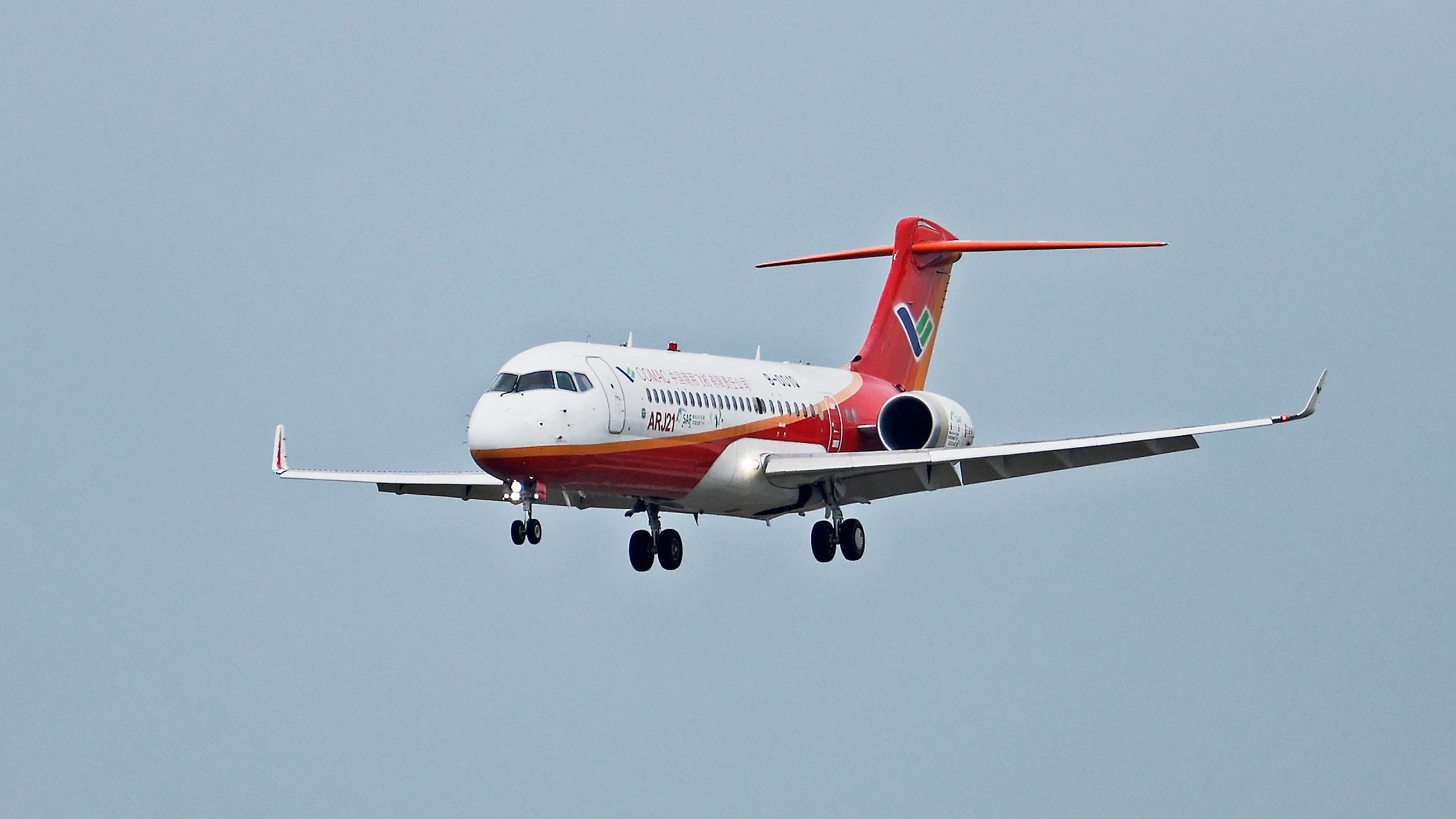
An ARJ-21 passenger plane flies using sustainable aviation fuel during a trial, Shanghai, China, June 5, 2024. /CFP
The aviation industry is not moving fast enough to reach its targets for producing and using sustainable aviation fuel (SAF), the head of airline trade body IATA, Willie Walsh, said on Tuesday, as it aims for net zero emissions by 2050.
"We're not making as much progress as we'd hoped for, and we're certainly not making as much progress as we need," Walsh said at an IATA media day in Geneva.
As it stands, sustainable aviation fuel makes up only around 0.3 percent of the world's jet fuel usage and is projected to only account for 0.7 percent by 2025, according to IATA data, with experts saying the production rate of green fuel needs to grow quickly for the sector to achieve its emissions goals.
An IATA study presented on Tuesday showed that global production of green jet fuel in 2024 was only 1 metric ton, lower than IATA's projection a year ago that it would be 1.5 metric tons.
Walsh pointed to a lack of biorefineries under construction that could produce green jet fuel, many of which require extensive capital expenditure to get built.
IATA said it would launch a new project to better track global SAF initiatives next year in an effort to provide more transparency for the sector's progress.
He said Europe was lagging behind the United States when it came to crafting incentives that could help boost investment in production facilities.
The 2022 U.S. Inflation Reduction Act (IRA) contains hundreds of billions of dollars in subsidies for clean energy and is billed as outgoing President Joe Biden's signature law to combat climate change.
Walsh said it was unclear what the incoming administration of President-elect Donald Trump would do regarding the IRA and how it would impact ongoing SAF production.
"There was quite a lot of progress in the first Trump administration in this area as well. So, I don't think this is a black-and-white issue," he told reporters.








 User Center
User Center My Training Class
My Training Class Feedback
Feedback












Comments
Something to say?
Login or Sign up for free